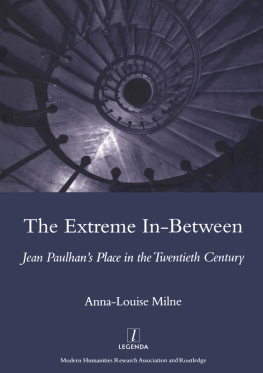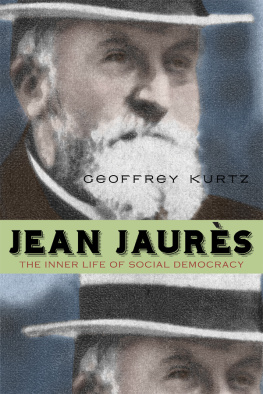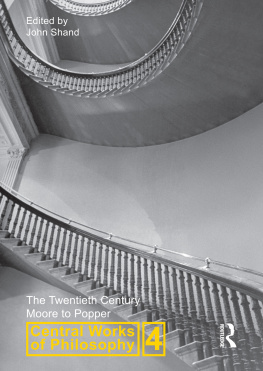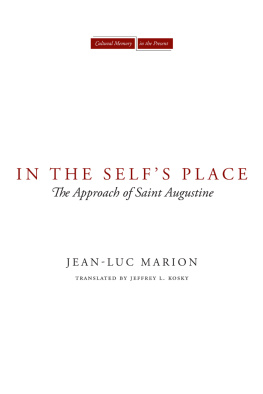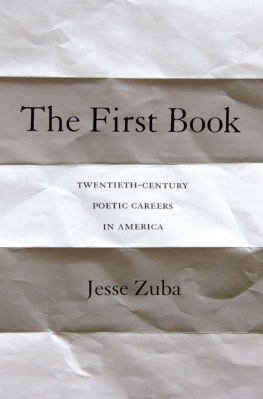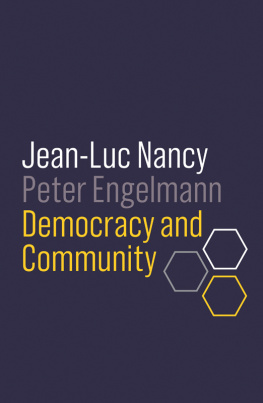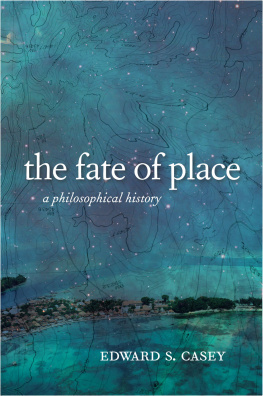THE EXTREME IN-BETWEEN JEAN PAULHAN'S PLACE IN THE TWENTIETH CENTURY
LEGENDA, founded in 1995 by the European Humanities Research Centre of the University of Oxford, is now a joint imprint of the Modern Humanities Research Association and Routledge. Titles range from medieval texts to contemporary cinema and form a widely comparative view of the modern humanities, including works on Arabic, Catalan, English, French, German, Greek, Italian, Portuguese, Russian, Spanish, and Yiddish literature. An Editorial Board of distinguished academic specialists works in collaboration with leading scholarly bodies such as the Society for French Studies and the British Comparative Literature Association.

The Modern Humanities Research Association (MHRA) encourages and promotes advanced study and research in the field of the modern humanities, especially modern European languages and literature, including English, and also cinema. It also aims to break down the barriers between scholars working in different disciplines and to maintain the unity of humanistic scholarship in the face of increasing specialization. The Association fulfils this purpose primarily through the publication of journals, bibliographies, monographs and other aids to research.

Routledge is a global publisher of academic books, journals and online resources in the humanities and social sciences. Founded in 1836, it has published many of the greatest thinkers and scholars of the last hundred years, including Adorno, Einstein, Russell, Popper, Wittgenstein, Jung, Bohm, Hayek, McLuhan, Marcuse and Sartre. Today Routledge is one of the world's leading academic publishers in the Humanities and Social Sciences. It publishes thousands of books and journals each year, serving scholars, instructors, and professional communities worldwide.
www.routledge.com
Editorial Board
Chairman
Professor Martin McLaughlin, Magdalen College, Oxford
Professor John Batchelor, University of Newcastle (English)
Professor Malcolm Cook, University of Exeter (French)
Professor Colin Davis, Royal Holloway University of London (Modern Literature, Film and Theory)
Professor Robin Fiddian, Wadham College, Oxford (Spanish)
Professor Paul Garner, University of Leeds (Spanish)
Professor Marian Hobson Jeanneret, Queen Mary University of London (French)
Professor Catriona Kelly, New College, Oxford (Russian)
Professor Martin Maiden, Trinity College, Oxford (Linguistics)
Professor Peter Matthews, St John's College, Cambridge (Linguistics)
Dr Stephen Parkinson, Linacre College, Oxford (Portuguese)
Professor Ritchie Robertson, St John's College, Oxford (German)
Professor Lesley Sharpe, University of Exeter (German)
Professor David Shepherd, University of Sheffield (Russian)
Professor Alison Sinclair, Clare College, Cambridge (Spanish)
Professor David Treece, King's College London (Portuguese)
Professor Diego Zancani, Balliol College, Oxford (Italian)
Managing Editor
Dr Graham Nelson
41 Wellington Square, Oxford OX1 2JF, UK
legenda@mhra.org.uk
www.legenda.mhra.org.uk
The Extreme InBetween
Jean Paulhans Place in the Twentieth Century
AnnaLouise Milne
First published 2006
Published by the
Modern Humanities Research Association and Routledge
2 Park Square, Milton Park, Abingdon, Oxon OX14 4RN
711 Third Avenue, New York, NY 10017, USA
LEGENDA is an imprint of the Modern Humanities Research Association and Routledge
Routledge is an imprint of the Taylor & Francis Group, an informa business
Modern Humanities Research Association and Taylor & Francis 2006
ISBN 13: 978-1-904350-52-1 (hbk)
All rights reserved. No part of this publication may be reproduced, stored in a retrieval system, or transmitted in any form or by any means, electronic, mechanical, including photocopying, recordings, fax or otherwise, without the prior written permission of the copyright owner and the publisher.
Product or corporate names may be trademarks or registered trademarks, and are used only for identification and explanation without intent to infringe.
Copy-Editor: Polly Fallows
IN MEMORY OF KATE AND SIDNEY HILL
Paulhan wanted to change his reader, and I am undoubtedly changed by the process of reading and writing about him, but also by the sustained and the more glancing encounters that have accompanied this project. For the help and support they have brought to it, I would like to thank first Claire and Jacqueline Paulhan, and also Bernard Baillaud, whose willing interest and instructive assistance have made working on Paulhan much more congenial than it would otherwise have been. Also the Department of French and Romance Philology at Columbia University, and most particularly Antoine Compagnon and Marina Van Zuylen, who have provided invaluable support and advice in different ways at different times. I would also like to thank the people who gave me opportunities to work through some of the ideas in this book in other forms and forums: Martyn Cornick, Carol Murphy, Karen K. Butler, Silvio Yeshua in particular. In this context, however, my most heartfelt thanks go to Michael Syrotinski, whose intellectual generosity has contributed more than any other to both the shape of this book and the quality of the experience of writing it. No other encounter has convinced me more that meaning resides in the effort made to understand one another. I hope I have understood enough. Other people have been prepared to meet me, recently and more distantly, in the sometimes painful, sometimes thrilling process of trying to make sense. My thanks to Fiona Robb, Pauline McNish, Dominique Amnion, Melissa Thackway, Pete Hallward, Adrienne Berman, Rosie Sarah Reiss, Mike Sadler, Flora McEvedy, Brigitte Rollet, Geoff Gilbert, Liza Dimbleby, Dara Asken, David Milne, and especially Rosemary Milne, but above all, for all the quiet between us, Mark Gore.
Thanks also to the team at Legenda, and particularly Graham Nelson and Paulne Fallows, who have made the final stages of this project so smooth.
I am very grateful to the University of London Institute in Paris, to Robert Lethbridge, Lucy Mitchell and particularly David Horner, for their institutional support over the past two years.
An earlier version of appeared in Yale French Studies 106 (2004), 'The Power of Rhetoric, the Rhetoric of Power', edited by Michael Syrotinski. My thanks to the editors for allowing me to re-explore some of that material here.
Anna-Louise Milne
Paris, December 2005
All translations, except where indicated, are my own. The majority of the quotations from Jean Paulhan are given in the original French in the endnotes to each chapter, with occasional indications of the original French expressions in brackets in the translations.
The quotations from Paulhan's texts are referenced to the edition of his collected works currently available, with the notable exceptions of Les Fleurs de Tarbes and Braque le patron, both more easily available in paperback editions.

